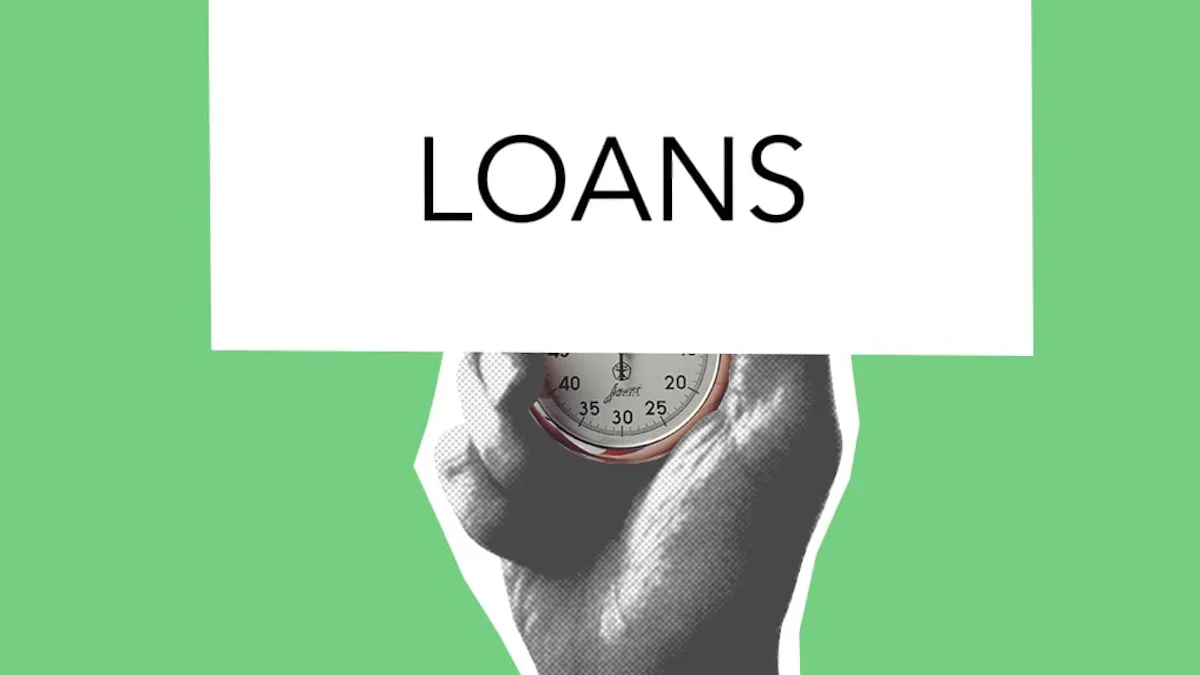Can you Pay back your student loans faster?

Paying off student loans can feel overwhelming, but tackling them fast has its perks. You save money on interest, reduce stress, and gain financial freedom sooner. Imagine what you could do without student loan debt holding you back—travel, invest, or even buy a home. Faster repayment also means you’ll spend less time worrying about forgiveness programs or loan forgiveness rules. Whether you want to pay back parent plus loans faster or focus on your own, every extra dollar you pay brings you closer to a debt-free life. Why wait to start?
Key Takeaways
Learn about your loans. Check details like interest rates and payment plans to make a good repayment plan.
Make a budget for paying loans. Find ways to spend less and use that money for your loans.
Pay off high-interest loans first. Use the avalanche method to save money on interest.
Earn more money with side jobs or part-time work. Extra cash can help you pay loans faster.
Think about refinancing or combining loans. This can make payments easier and lower interest rates.
Understand Your Loans
Paying off your student loan debt fast starts with understanding the details of your loans. When you know exactly what you're dealing with, you can create a smarter repayment strategy. Here's why this step is so important.
Know Your Loan Details
Every loan is different, and knowing the specifics of yours can make a big difference. Start by reviewing the key terms of your loans. These details will help you understand how much you owe, how long you have to pay it back, and how interest affects your repayment. Here's a quick breakdown of the most important terms:
Term | Description |
|---|---|
Promissory note | A document agreeing to the terms and conditions of the loan and promising to repay it. |
Loan term | The length of time available for repayment of the loan. |
Interest | The charge for borrowing money, calculated based on the interest rate and outstanding balance. |
Fixed interest rate | An interest rate that remains unchanged throughout the loan term. |
Variable interest rate | An interest rate that may change over time, affecting monthly payments. |
Repayment | The period during which the borrower is required to repay the loan. |
Income-Driven Repayment Plans | Plans that adjust monthly payments based on income and family size, potentially leading to forgiveness. |
Student loan refinancing | The process of obtaining a new loan to pay off existing loans, possibly with better terms. |
Understanding these terms will help you make informed decisions about how to pay back your loans faster.
Check for Prepayment Penalties
Before you start making extra payments, check if your loans have prepayment penalties. Some lenders charge fees for paying off loans early. To find out if this applies to you:
Read your loan agreement. Look for terms like "prepayment fee" or "early payoff penalty."
Review the Truth-in-Lending Disclosure Statement. This document outlines any prepayment penalties.
Contact your lender directly. Ask them if your loan includes any penalties for early repayment.
Knowing this information ensures you won't face unexpected charges when trying to pay off your loans quickly.
Use Loan Servicer Tools
Loan servicers offer tools to help you manage your loans more effectively. These tools can simplify repayment and keep you on track. Some of the most helpful options include:
Customer Relationship Management (CRM) Systems: These systems improve communication with your loan servicer and track your interactions.
Document Management Systems: These tools securely store and organize your loan documents, making it easier to access important information.
Loan Management Software: This software automates repayment tasks, centralizes your loan data, and provides insights into your progress.
Using these tools can save you time and help you stay organized as you work toward paying off your student loans.
Create a Budget and Prioritize Payments

Paying off student loan debt faster starts with a solid plan. A budget helps you take control of your money and focus on repayment. Here’s why creating a loan-focused budget and prioritizing payments can make a big difference.
Build a Loan-Focused Budget
A budget is your roadmap to financial success. It shows where your money goes and helps you find extra cash for your loans. Start by listing your income and expenses. Then, look for areas where you can cut back. Maybe you’re spending too much on takeout or streaming services. Redirect that money toward your student loans instead.
Why does this matter? A loan-focused budget ensures you’re putting every possible dollar toward repayment. It keeps you on track and helps you avoid unnecessary spending. Plus, seeing your progress can motivate you to keep going.
Prioritize High-Interest Loans
Not all loans are created equal. Some have higher interest rates, which means they cost you more over time. Focus on paying these off first. This strategy, often called the "avalanche method," saves you money in the long run.
Here’s how it works:
Continue making minimum payments on all your loans.
Put any extra money toward the loan with the highest interest rate.
Once that loan is paid off, move to the next highest rate.
By tackling high-interest loans first, you’ll reduce the total amount you pay over time. It’s a smart way to speed up repayment.
Automate Payments
Life gets busy, and it’s easy to forget a payment. Automating your payments solves this problem. Set up automatic transfers with your loan servicer. This ensures you never miss a due date.
Why automate? Many lenders offer discounts for setting up auto-pay. Even a small discount can add up over time. Automation also keeps you consistent, which is key to paying off loans fast. Plus, it saves you the hassle of remembering deadlines.
With a budget, a focus on high-interest loans, and automated payments, you’ll be well on your way to paying back your student loans faster.
Increase Your Income
Boosting your income can make a huge difference when you’re trying to pay back student loans fast. More money means you can make extra payments, reduce your balance quicker, and save on interest. Here are some ways to increase your earnings and speed up your repayment journey.
Start a Side Hustle
A side hustle is a great way to bring in extra cash without leaving your main job. It doesn’t have to be complicated. You can start small and grow from there. For example, you could sell stuff you don’t use anymore, like clothes or electronics. It’s a simple way to declutter and make money at the same time.
If you’re creative, consider teaching online courses or offering sports skills tutoring. These gigs let you share your knowledge while earning extra income. Another unique option is becoming a wedding officiant. It’s a fun way to meet people and get paid for it.
Side hustles not only help you pay off student loan debt faster but also give you a sense of accomplishment. Plus, you might discover a new passion along the way.
Ask for a Raise
When was the last time you asked for a raise? If it’s been a while, now might be the perfect time. Employers often reward hard work, but they won’t always offer more money unless you ask.
Prepare before you approach your boss. Highlight your achievements and explain how you’ve added value to the company. Be confident but polite. Even a small raise can make a big difference in your repayment plan. Use that extra income to pay down your loans faster and reduce your financial stress.
Take on Part-Time Work
If a side hustle or raise isn’t an option, part-time work can help. Look for flexible jobs that fit your schedule. Retail, food service, or seasonal work are great choices. These jobs often have evening or weekend shifts, so you can keep your full-time job.
The extra income from part-time work can go directly toward your loans. Every dollar counts when you’re working toward loan forgiveness or trying to pay off your student loan debt. Plus, part-time work can provide valuable experience and networking opportunities.
Increasing your income gives you more control over your finances. Whether you choose a side hustle, ask for a raise, or take on part-time work, every effort brings you closer to financial freedom.
Make Extra Payments Strategically

Want to pay off student loans fast? Making extra payments is one of the smartest ways to do it. By going beyond the minimum, you can reduce your balance quicker and save on interest. Let’s explore how you can make those extra payments work harder for you.
Pay More Than the Minimum
Sticking to the minimum payment might feel safe, but it keeps you in debt longer. When you pay more than the minimum, you chip away at the principal balance faster. This reduces the amount of interest you’ll owe over time. Even small additional payments can make a big difference.
For example, if you have $30 left over each month, don’t let it sit idle. Put it toward your loans instead. Over the years, those extra payments add up, helping you pay back your student loan debt faster. If you ever receive a bonus or tax refund, consider making a lump-sum student loan payment. It’s a great way to knock out a chunk of your balance in one go.
Make Biweekly Payments
Switching from monthly to biweekly payments is another clever strategy. Instead of making one payment each month, you split it into two smaller payments every two weeks. This approach results in one extra full payment each year without you even noticing.
Here’s how it helps:
Shortens your repayment period. For a 10-year loan, biweekly payments can cut it down to about nine years.
Saves you money on interest. For instance, a $36,000 loan at 5.50% interest would cost $10,883 in interest with monthly payments. Biweekly payments reduce that to $9,624, saving you over $1,000.
This simple change can speed up your repayment and lighten the financial load.
Round Up Payments
Rounding up your payments is an easy way to make additional payments without much effort. Let’s say your monthly payment is $257. Round it up to $300. That extra $43 goes straight to your principal balance. Over time, these small amounts can significantly reduce your loan term and the total interest you pay.
Think of it as a painless way to pay off student loans fast. You won’t feel the pinch, but you’ll see the results. Plus, rounding up keeps you motivated as you watch your balance shrink faster than expected.
By using these strategies—paying more than the minimum, switching to biweekly payments, and rounding up—you’ll take control of your repayment journey. Every extra dollar you pay brings you closer to financial freedom.
Refinance or Consolidate Loans
Refinancing or consolidating loans can simplify your repayment journey and even save you money. But how do you know which option is right for you? Let’s break it down.
Understand Refinancing
Refinancing student loans can be a game-changer if you’re looking for a lower interest rate. When you refinance, you replace your existing loans—federal, private, or both—with a new loan from a private lender. The goal? To secure better terms, like a reduced interest rate or lower monthly payments.
Why does this matter? A lower interest rate means you’ll pay less over time. For example, refinancing a $50,000 loan from 7% to 4% interest could save you thousands of dollars. Using a student loan payoff calculator can help you estimate your potential savings.
However, refinancing isn’t for everyone. If you refinance federal loans, you’ll lose access to benefits like income-driven repayment plans and loan forgiveness programs. So, weigh the pros and cons carefully before making a decision.
Consider Loan Consolidation
If managing multiple loans feels overwhelming, consolidation might be the solution. When you consolidate student loans, you combine several federal loans into one. This simplifies your repayment process by giving you a single monthly payment.
Unlike refinancing, consolidation doesn’t lower your interest rate. Instead, it calculates a weighted average of your current rates. While this won’t save you money on interest, it can make repayment more manageable. Consolidation is also limited to federal loans, so private loans won’t qualify.
Think of consolidation as a way to streamline your payments, not necessarily to save money. It’s a great option if you’re juggling multiple federal loans and want to simplify your finances.
Evaluate Eligibility
Before you refinance or consolidate, check if you meet the eligibility criteria. Here’s a quick overview:
Criteria | Description |
|---|---|
U.S. Citizenship | Must be a U.S. citizen or permanent resident. |
Age Requirement | Must be of age of majority or older. |
Minimum Loan Amount | At least $10,000. |
Educational Qualification | Must have a Bachelor’s degree or higher. |
Minimum Income | Must have a minimum income of $35,000. |
Credit Score | Minimum credit score of 680 required. |
Credit History | At least 36 months of credit history needed. |
Educational Institution | Degree must be from a Title IV U.S. non-profit college or university. |
Meeting these requirements is crucial, especially for refinancing. Lenders often base their decisions on your creditworthiness and income. If you don’t qualify yet, focus on improving your credit score or increasing your income before applying.
Refinancing or consolidating loans can make repayment easier and even save you money. Whether you’re aiming for a lower interest rate or simpler payments, understanding your options is the first step toward financial freedom.
Cut Expenses and Redirect Savings
Cutting back on expenses might not sound exciting, but it’s one of the most effective ways to free up money for your loans. Every dollar you save can go straight toward repayment, helping you pay off your student loan debt faster. Let’s explore how you can trim your spending and make the most of your savings.
Reduce Discretionary Spending
Discretionary spending includes all those “wants” that aren’t essential. Reducing these expenses can make a big difference in your repayment journey. Start by cutting back on dining out. Cooking at home is not only cheaper but also healthier. Next, think about your entertainment costs. Could you swap movie nights at the theater for streaming at home?
Sharing subscription services is another smart move. If you and a friend both pay for the same streaming platform, why not split the cost? Also, opt for generic products instead of name brands. Whether it’s groceries or household items, generics often work just as well and cost less. Finally, look for ways to save on housing and monthly bills. For example, you could find a roommate or negotiate a better rate with your internet provider.
Save on Fixed Costs
Fixed costs, like rent and utilities, might seem unchangeable, but there’s often room to save. Consider downsizing your living space. A smaller apartment or shared housing can significantly lower your rent. For utilities, simple changes like using energy-efficient bulbs or unplugging devices when not in use can reduce your bills.
Transportation is another area to examine. If you drive, carpooling or using public transit can cut costs. Even small adjustments, like biking to work, can save money and improve your health. Redirect these savings toward your loans to speed up repayment.
Use Windfalls Wisely
Unexpected money, like bonuses, tax refunds, or gifts, can be a game-changer for your loans. Instead of spending it on something temporary, use it to make a lump-sum payment. This reduces your principal balance and saves you money on interest.
Think of windfalls as opportunities to get ahead. Even small amounts can make a big impact when applied strategically. By using these funds wisely, you’ll pay off your loans faster and feel the weight of student loan debt lift sooner.
Paying off student loans fast is absolutely possible when you combine smart planning with consistent effort. By understanding your loans, creating a budget, and prioritizing high-interest payments, you can take control of your repayment journey. Increasing your income through side hustles or part-time work gives you extra funds to pay down your balance. Refinancing or consolidating loans can simplify the process, while cutting expenses frees up even more money for repayment.
Why should you act now? Paying off student loans early offers incredible benefits. You’ll save on interest, improve your debt-to-income ratio, and reduce financial stress. Plus, eliminating student loan debt gives you more available income to invest in your future. Whether you’re aiming for teacher loan forgiveness or just want to pay off parent plus loans faster, every step you take brings you closer to financial freedom.
Don’t let the challenges of repayment hold you back. Start today by reviewing your loans and creating a repayment plan. The sooner you begin, the faster you’ll achieve your goals—whether it’s qualifying for public service loan forgiveness or simply enjoying a debt-free life.
See Also
The Importance of Starting Your Finances Early
Essential Insights for Credit Cardholders on 2025 Rates
Effects of Fed Rate Cuts on Your Savings Strategy
January Mortgage Trends: Expect Lower Rates This Year
Recovering Financially: Strategies for Wealth Building Post-Setback

